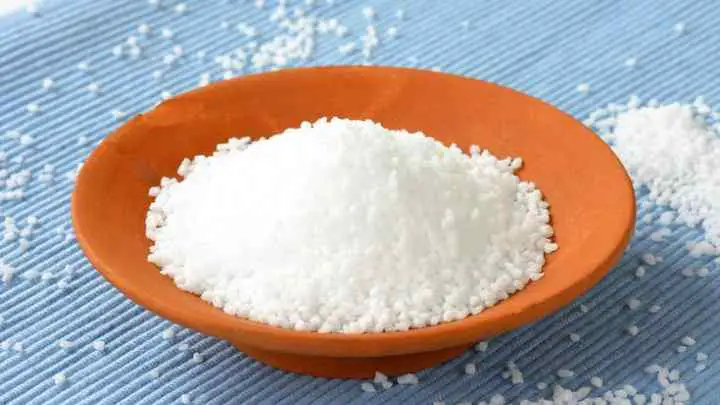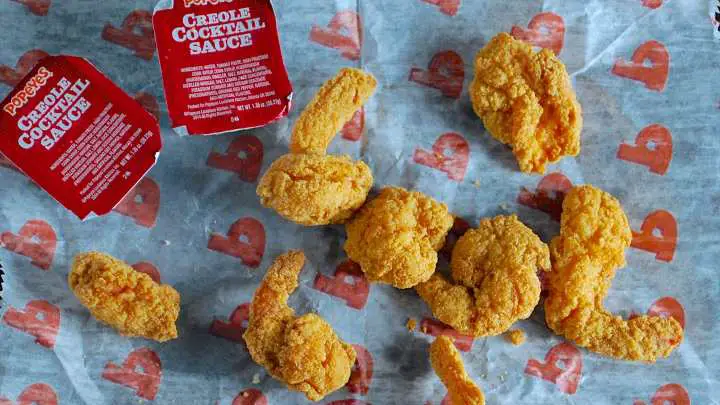Because salt is a common ingredient in food and pastry, the age-old question of whether all salt is sea salt has persisted.
However, it is natural to wonder if sea salt is the same as regular salt, which is why this article was created. It dives deep into the question and gives all the answers you seek.
Furthermore, you will discover different salt names and what other types of sulfates you may have come across without realizing they were salt.
At this point, you must be more intrigued than ever, so read all the way through.
What is sea salt?
Saltwater is evaporated to produce sea salt. Either open-air solar evaporation or a quicker vacuum evaporation process is used to achieve the evaporation.
The slower, sun-fueled evaporation process is often the source of some of the more expensive sea salts on the market today. You can consume salt that has undergone minimal processing and still have trace minerals that are good for your health.
Additionally, it has natural flavors and colors that make it much more tasty and impressive to use for both homemade beauty products and cooking.
It has been used by mankind since the dawn of time, and modern kitchens still have it. Although there is little evidence to support these claims, some people even think it’s better for you than other kinds of salt and has several advantages.
In addition to its culinary applications, sea salt is frequently added to body scrubs, baths, drinks, and other products.
Although unrefined, it is typically recommended to optimize its potential health benefits; it is available in both unrefined and refined forms.
On the other hand, refined ones are washed to remove their essential minerals and often hold unhealthy food additives that cause a leaky gut.
Is all salt sea salt?
Yes, even table salt is sodium chloride (NaCl), and it all originates from sea salt. Seawater that has evaporated is used to make salt. In contrast to table salt, which is processed, it is not refined, thereby the name.
Is sea salt better than regular salt?
Not really. The health benefits of sea salt over table salt are often exaggerated. However, the fundamental nutritional value of both is the same.
They both have about the same amounts of sodium in them. Regardless of the salt you prefer, use it sparingly.
Is sea salt iodized?
No, it is not. It is devoid of iodine, unlike table salt. Although, the main components of both are sodium and chloride.
Nonetheless, it is not processed after harvesting, unlike table salt, but it does contain traces of minerals like potassium, zinc, and iron.
Is all pink salt sea salt?
Technically, it is. Although, it is a pink-hued salt variety that is obtained close to the Himalayan mountains in South Asia. Many people consider Himalayan salt a healthier choice than regular table salt or sodium chloride.
SEE: How Much Salt Is In Salted Butter
Is sea salt a healthy salt?
Many sea salts don’t provide any special health benefits. The natural sources found in it are in very small amounts and can be easily found in others. In comparison to table salt, it typically has less iodine, which is added to prevent goiter.
Sea salt vs Himalayan salt
There are some differences between them even though they are both salt and perform the same tasks.
Sea salt
- The combustion of seawater results in the production of sea salt.
- Modern techniques, including evaporation pans, are used to extract it.
- It can range in color from off-white to pink, greenish, or even black.
- It frequently has moist granules that are difficult to melt.
- It can be used as a skin scrub and in cooking.
SEE: This Is Why You Should Never Substitute Garlic Powder For Garlic Salt
Himalayan salt
- Pakistani mountains are where salt from the Himalayas is mined. It is salt that was created when an ancient sea dried up.
- Hand mining and conventional methods are used to extract it.
- Himalayan salt can range in hue from off-white to pink or red.
- It contains very dry salt granules that are simple to melt.
- To flavor food, Himalayan salt can be used in cooking. Additionally, baking dishes, serving trays, and salt lamps are all made from Himalayan salt.
Sea salt vs table salt
Sodium chloride, which aids in controlling blood pressure and fluid balance in the body, makes up most sea salt.
It has some minerals like potassium, iron, and calcium because it has undergone minimal processing. One reason why it’s often regarded as nutritionally superlative to table salt, which is strongly ground and has had the majority of its nutrients removed, is because of this.
However, there are very few amounts of nutrients in salt. To even come close to getting the same potassium, iron, calcium, or magnesium that you could quickly get from whole foods, you would have to consume extremely large amounts of it.
Granules of sea salt are also bigger than those of table salt. As a result, it has 2,000mg sodium per teaspoon, while regular salt has about 2,300mg per tablespoon.
This is because fewer salt particles can fit into a teaspoon when compared to table salt. It’s not because table salt has less sodium in it.
Despite this, most people believe it to be more nutritious than table salt because it contains less sodium which has been associated with high blood pressure and a higher risk of heart disease.
Sea salt vs table salt taste
It tends to have a crunchier and sharper taste than iodized salt because it undergoes less processing.
However, it can lose its flavor and color once cooked or dissolved, and because it has more minerals than table salt, it doesn’t taste as “salty.”
Sea salt vs kosher salt
Although it has a weak reputation in the world of salt, kosher salt is a healthy alternative that is both comparable to and distinct.
Kosher salt
Kosher salt is an unadulterated, coarse, flat-grained edible salt. The main component is sodium chloride.
Kosher salt is not iodized, in contrast to regular table salt, which does so and gives food a bitter aftertaste.
Its seasoning food is gentler than table salt and has a simple, straightforward flavor. Underground salt deposits are mined to produce kosher salt.
SEE: Stand A Chance to Win a $500 Gift Card at Fresh Market
Sea salt
It is created by crystallizing salt water from lakes or the ocean. It has micronutrients and other delicate flavors that Kosher lacks because it is harvested from water.
There are two types of sea salt available for purchase: fine and flaky or stocky sea salt.
Due to its crunchy texture, flaky or harsh salt is best used as a finishing salt. When you want a burst of salty flavor, it’s great to sprinkle over a salad or vegetables.
You need to adjust the amounts because fine salt is ground more finely. Like table salt, it is ground to a very fine consistency.
Which salt is good for health?
Many people consider Himalayan salt to be a lot healthier than regular table salt or sodium chloride.
FAQs
Is sea salt hard on kidneys?
Not really. According to research, salt is much less harmful to the kidneys than regular salt when consumed in large amounts.
What is considered real salt?
Real Salt is a pure, unprocessed sea salt that is derived from a prehistoric ocean. Though we hate to brag, it’s full of natural minerals that give it a healthy, delectable, and pink or red appearance. We’re also the top-selling brand in health food stores across America.
Which salt is less harmful?
Potassium salts do not pose the same health hazards as sodium-based salts because they contain up to 70% less sodium than regular table salt.
Even though potassium is an adversary of sodium, it may even lower blood pressure when you consume potassium salts.
SEE: Enjoy 15% Off Your Next Purchase at Boston Market
How can you tell if salt is iodized?
Only a chemical analysis of salts will reveal whether it has been iodized. Iodate, some anti-caking agents, and some dextrose are all ingredients in iodized salt, which cannot be detected by taste.
Therefore, if you want your salt to have iodine, check the label before you buy it at the grocery store.
Which salt is good for BP?
Himalayan pink salt has become more popular as a substitute for regular salt, allegedly because it causes the body less stress to consume.
That’s because eating too much salt can increase your risk of high blood pressure, stroke, and heart disease.
Conclusions
Do not worry too much about the origin of your salt because technically, all salts, including table salt, come from seas or other salty bodies of water.
Nonetheless, there are salts in the market not derived from the sea and may be man-made.
Consequently, sea salt can be as harmful to your health and still be a source of nutrition as any other salt. When it comes to the negative side, they hardly differ from one another.
In the same way, contrary to the myth that has been associated with it, salt does not cause kidney stones or otherwise harm your kidneys.
Thanks for reading.
If you enjoyed reading this article, view Cheffist for more.






